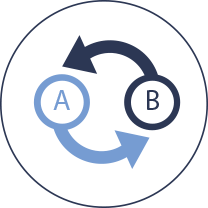
What's Medicare Supplement Insurance (Medigap)?
A Medicare Supplement Insurance (Medigap) policy helps pay some of the health care costs that Original Medicare doesn't cover, like:
* Copayments * Coinsurance * Deductibles

Medigap policies are sold by private companies.
Some Medigap policies also cover services that Original Medicare doesn't cover, like medical care when you travel outside the U.S. If you have Original Medicare and you buy a Medigap policy, here's what happens:

Medicare will pay its share of the Medicare-approved amount for covered health care costs.
Then, your Medigap policy pays its share.
8 things to know about Medigap policies
• You must have Medicare Part A and Part B
• A Medigap policy is different from a Medicare Advantage Plan. Those plans are ways to get Medicare benefits, while a Medigap policy only supplements your Original Medicare benefits.

• You pay the private insurance company a monthly premium for your Medigap policy. You pay this monthly premium in addition to the monthly Part B premium that you pay to Medicare.

• A Medigap policy only covers one person. If you and your spouse both want Medigap coverage, you'll each have to buy separate policies.

• You can buy a Medigap policy from any insurance company that's licensed in your state to sell one.

• Any standardized Medigap policy is guaranteed renewable even if you have health problems. This means the insurance company can't cancel your Medigap policy as long as you pay the premium.

• Some Medigap policies sold in the past cover prescription drugs. But, Medigap policies sold after January 1, 2006 aren't allowed to include prescrip

• It's illegal for anyone to sell you a Medigap policy if you have a Medicare Advantage Plan, unless you're switching back to Original Medicare.
Medigap policies don't cover everything
Medigap policies generally don't cover long-term care, vision or dental care, hearing aids, eyeglasses, or private-duty nursing.Insurance plans that aren't Medigap
Some types of insurance aren't Medigap plans, they include: • Medicare Advantage Plans (like an HMO, PPO, or Private Fee-for-Service Plan)• Medicare Prescription Drug Plans
• Medicaid
• Employer or union plans, including the Federal Employees Health Benefits Program (FEHBP)
• TRICARE
• Veterans benefits
• Long-term care insurance policies
• Indian Health Service, Tribal, and Urban Indian Health plans

Medigap & Medicare Advantage Plans
Medigap policies can't work with Medicare Advantage Plans. If you have a Medigap policy and join a Medicare Advantage Plan (Part C), you may want to drop your Medigap policy. Your Medigap policy can't be used to pay your Medicare Advantage Plan copayments, deductibles, and premiums. If you want to cancel your Medigap policy, contact your insurance company. If you leave the Medicare Advantage Plan, you might not be able to get the same, or in some cases, any Medigap policy back unless you have a "trial right."
If you have a Medicare Advantage Plan, it's illegal for anyone to sell you a Medigap policy unless you're switching back to Original Medicare.

If you join a Medicare Advantage Plan for the first time, and you aren’t happy with the plan, you’ll have special rights under federal law to buy a Medigap policy. You have these rights if you return to Original Medicare within 12 months of joining.

• If you had a Medigap policy before you joined, you may be able to get the same policy back if the company still sells it. If it isn’t available, you can buy another Medigap policy.

• The Medigap policy can no longer have prescription drug coverage even if you had it before, but you may be able to join a Medicare Prescription Drug Plan (Part D) .

• If you joined a Medicare Advantage Plan when you were first eligible for Medicare, you can choose from any Medigap policy.

When can I buy Medigap?
Buy a policy when you're first eligible The best time to buy a Medigap policy is during your 6-month Medigap open enrollment period. During that time you can buy any Medigap policy sold in your state, even if you have health problems. This period automatically starts the month you're 65 and enrolled in Medicare Part B (Medical Insurance). After this enrollment period, you may not be able to buy a Medigap policy. If you're able to buy one, it may cost more.During open enrollment
Medigap insurance companies are generally allowed to use medical underwriting to decide whether to accept your application and how much to charge you for the Medigap policy.

I'm 65 or older.
Your Medigap open enrollment period begins when you enroll in Part B and can't be changed or repeated. In most cases, it makes sense to enroll in Part B when you're first eligible, because you might otherwise have to payI'm turning 65.
The best time to buy a Medigap policy is the 6-month period that starts the first day of the month you're 65 or older and enrolled in Part B. For example, if you turn 65 and are enrolled in Part B in June, the best time for you to buy a Medigap policy is from June to November. After this enrollment period, your option to buy a Medigap policy may be limited and it may cost more. Some states have additional open enrollment periods.

I'm under 65.
Federal law doesn't require insurance companies to sell Medigap policies to people under 65. If you're under 65, you might not be able to buy the Medigap policy you want, or any Medigap policy, until you turn 65. However, some states require Medigap insurance companies to sell you a Medigap policy, even if you're under 65. If you're able to buy one, it may cost you more.I have group health coverage through an employer or union.
If you have group health coverage through an employer or union because either you or your spouse is currently working, you may want to wait to enroll in Part B. Employer plans often provide coverage similar to Medigap, so you don't need a Medigap policy. When your employer coverage ends, you'll get a chance to enroll in Part B without a late enrollment penalty. That means your Medigap open enrollment period will start when you're ready to take advantage of it. If you enrolled in Part B while you still had the employer coverage, your Medigap open enrollment period would start. Unless you bought a Medigap policy before you needed it, you’d miss your open enrollment period entirely.

Outside open enrollment
If you apply for Medigap coverage after your open enrollment period, there's no guarantee that an insurance company will sell you a Medigap policy if you don’t meet the medical underwriting requirements I'm under 65 and am eligible for Medicare because of a disability or End-Stage Renal Disease (ESRD). If you have ESRD, you may not be able to buy the Medigap policy you want, or any Medigap policy, until you turn 65. Federal law doesn't require insurance companies to sell Medigap policies to people under 65. These states require the insurance companies to offer at least one kind of Medigap policy to people with Medicare under 65:
California*
Colorado
Connecticut
Delaware
Florida
Georgia
Hawaii
Idaho
Illinois
Kansas
Kentucky
Louisiana
Maine
Maryland
Massachusette
Michigan
Minnesota
Mississippi
Missouri
Montana
New Hampshire
New Jersey
New York
North Carolina
Oklahoma
Oregon
Pennsylvania
South Dakota
Tennessee
Texas
Vermont *
Wisconsin
I have a pre-existing condition.
The insurance company can't make you wait for your coverage to start, but it may be able to make you wait for coverage if you have a pre-existing condition. In some cases, the Medigap insurance company can refuse to cover your out-of-pocket costs for these pre-existing health problems for up to 6 months (called the "pre-existing condition waiting period"). After these 6 months, the Medigap policy will cover your pre-existing condition.
I have a pre-existing condition and am replacing "creditable coverage."
It's possible to avoid or shorten waiting periods for a Pre-existing condition if you buy a Medigap policy during your Medigap open enrollment period to replace 'Creditable coverage (Medigap)= it shorten pre existing condition waiting period by having previous health insurance coverage that can be used to do so.'
I have a guaranteed issue right.
If you buy a Medigap policy when you have a guaranteed issue right (also called 'Medigap protections'), the insurance company can't use a pre-existing condition waiting period.
Dropping or losing Medigap
Drop your Medigap policy
If you want to drop your policy, contact your insurance company to cancel it.If you're losing Medigap coverage
In most cases, your Medigap insurance company can't drop you because the Medigap policy is a guaranteed renewable policy. This means your insurance company can't drop you unless one of these happens: * You stop paying your premiums* You weren't truthful on the Medigap policy application
* The insurance company becomes bankrupt or insolvent
If you bought your Medigap policy before 1992, it might not be guaranteed renewable. This means the Medigap insurance company can refuse to renew the Medigap policy. But, the insurance company must get the state's approval to cancel your Medigap policy. If this happens, you have the right to buy another Medigap policy.
